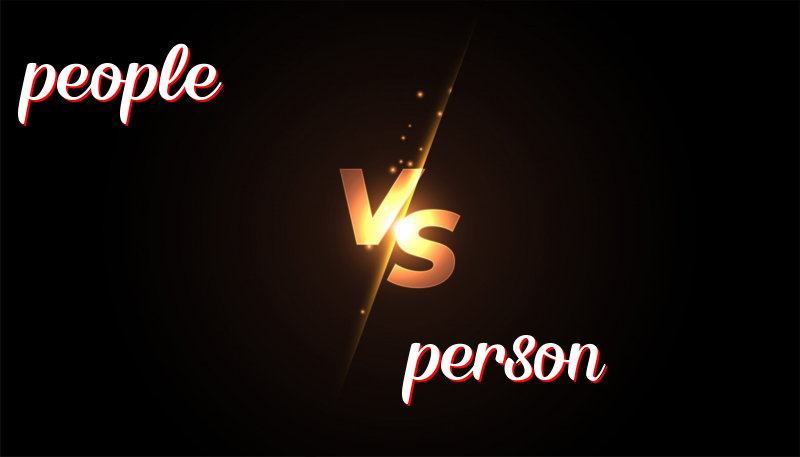英語單詞People 與 Person的區別
November 16, 2024
People 與 Person 的差異
在學習英文時,people 和 person 是大家可能常會混淆的兩個詞。它們看似簡單,但在用法上卻有細微的差別。因此,我們將探討這兩個詞的歷史、用法,並提供幾個記住它們差異的小技巧。
詞源與歷史
Person 源於拉丁文 “persona”,意思是「面具」,這是因為在古羅馬禮儀中,演員用面具代表不同角色。隨著語言的演變,“person” 逐漸被用來指代一個個體或個人。
People 則來源於拉丁文 “populus”,意指「人民」或「群體」,用來指集合的群體或許多人。因此,英文中“people”便用於描述多數人的情況。
用法
1. Person 是用來指一個人,即單數。通常用於描述一位特定的個體。
- He is a kind person.
他是一個善良的人。 - Every person in the room has a different opinion.
房間裡的每個人都有不同的意見。 - The person who called you left a message.
給你打電話的人留了一個訊息。 - I spoke to the person at the front desk.
我跟前台的人講話了。 - She is the only person who finished the task on time.
她是唯一一個按時完成任務的人。
2. People 用於指兩個或兩個以上的人,即複數形式。也可以泛指「人民」或「群眾」。
- There were many people at the concert.
音樂會上有很多人。 - People from all over the world visit this museum.
來自世界各地的人們參觀這座博物館。 - The park was full of people enjoying the sunny day.
公園裡到處都是享受陽光的人們。 - People often forget to bring their umbrellas in the rain.
人們常常在下雨時忘記帶傘。 - The opinion of the people is important for the government.
人民的意見對政府來說很重要。
記憶小技巧
- “Person” 只有一個 “s”,代表單數;而“people” 有 “peo-” 這個長音節,代表的是多數人。
- 聯想:“Person” 字母數少,指單個;“People” 字母數多,指多個人。
總結
總結來說,person 是用來指代個別一人,而 people 則是指多數人。在使用中要留意注意單複數的不同,這樣就可以避免在英語寫作和溝通中產生混淆。

Leave a Reply
You must be logged in to post a comment.